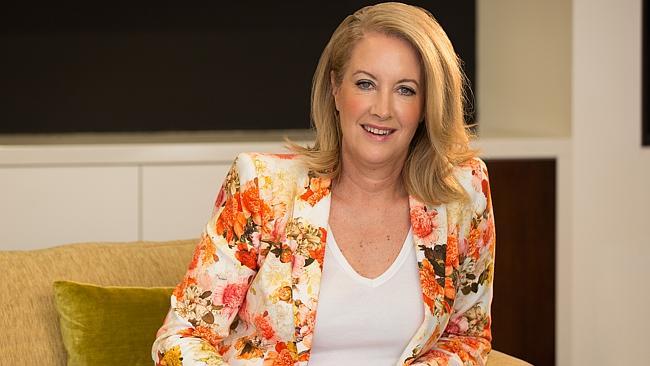Elizabeth Broderick reveals why Australia must consider quotas to get more women in senior roles
WHEN it comes to having more women in senior roles, the thorny Q-word — Quotas — stirs up a hornets nest. This is why we must consider them.

Careers
Don't miss out on the headlines from Careers. Followed categories will be added to My News.
MENTION that thorny Q-word — quotas — and you are always going to stir up a hornets nest.
Elizabeth Broderick, who this week wrapped up an extended eight year term as Sex Discrimination Commissioner, knows even mentioning mandatory quotas for women on boards triggers outrage and controversy.
But in one of her final interviews, Ms Broderick has sought to put the issue back on the table.
She said Australia must be willing to consider moving to a system of quotas in “a couple of years’ time” if voluntary targets and initiatives have failed to substantially increase the number of women on company boards.
“I’ve always said quotas need to be in our back pocket for sure,” Ms Broderick told News Corp Australia this week.
While the number of women on boards has doubled over the course of Ms Broderick’s eight year term, she said progress was still not occurring fast enough.
If voluntary targets continue to fail to deliver significant gains for women, she believes mandatory quotas could be required to deliver and immediate jolt the system.
MORE: How men and women can beat domestic violence
“If, in a couple of years, targets haven’t delivered the progress with the numbers of women on boards and the numbers of women at key decision making levels, we need to have a really strong conversation about what a quota will do.”
Australian Bureau of Statistics data, released last month, showed just 24 per cent of board directors were women. Even more concerning was the statistic that only 17 per cent of company chief executives were women.
In her final address to the National Press Club on Wednesday, Ms Broderick made the point in the strongest possible terms.
“Fewer Big Australian companies are run by women than by men named Peter,” Ms Broderick said.
“Indeed, companies run by a Peter, a Michael, a David or an Andrew outnumber those run by women four to one.”
The question of how we can boost the representation of women on boards is a matter currently being considered by the Senate, as well as the Human Rights Commission.
South Australian Independent Senator Nick Xenophon has introduced a bill into the parliament to cement a legislated target for women to make up at least 40 per cent of board members on Government boards.
“Ideally, a company or government board should represent not only its own stakeholders, but the wider community,” Senator Xenophon told the parliament when he introduced the bill.
“A balance of views, backgrounds and approaches has been shown to result in better outcomes for boards, and by extension for the entities they manage.”
The chief executive of the Australian Stock Exchange Funke Kupper has also leapt into the fray. He said while the momentum for change is there, progress to date has been far from satisfactory.
Mr Kupper is not calling for quotas — telling the Senate in his submission that he does not think diversity should be “a tick the box exercise” — but he is in favour of setting hard targets and having more accountability.
“Improving gender balance should be treated as any other important business objective,” Mr Kupper told the Senate in a submission.
“It is not just the right thing to do; ensuring that companies use 100 per cent of the available talent, it is critical to long term business success.”
But despite the broad support for change, any move toward rolling out mandatory gender quotas for company boards will be vehemently resisted by the business community.
Kate Carnell, the chief executive of the Australian Chamber of Commerce and Industry does not believe quotas are the answer.
“The issue that we’ve got is a cultural issue, and quotas don’t fix culture,” Ms Carnell said.
The business leader fears that if Australia moved to a system of legislated quotas it would risk creating resentment and bias against those women on boards or in senior management roles.
“I can speak personally, and the great dilemma of being a woman in senior management, if there is any view of their being a quota, is you get the pushback that you only go the job because you are a woman,” she said.
“Senior management roles are tough enough, regardless of whether you are a woman or a man, and if you are starting from a position where there is a perception that you are only there because you are a woman, then you are starting from behind.”
Ms Carnell believes the key problem is that men of a certain age fill board openings by selecting from within their limited and primarily male circle of professional acquaintances.
She believes this will begin to change when a younger generation of both male and female business leaders begin to account for a critical mass of Australian boards.
But Labor’s Penny Wong, while not mentioning quotas, said affirmative action works.
“Liz Broderick is right to identify the importance of cultural change in ensuring more women in leadership,” Senator Wong told News Corp.
“Greater participation of women in business improves governance, leads to better informed public policy and stronger economic outcomes.”
Originally published as Elizabeth Broderick reveals why Australia must consider quotas to get more women in senior roles


